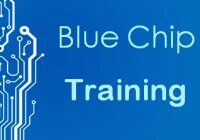 Overview
Overview
For who
The workshop is intended for beginners, starting to work with the Oracle database, future administrators and users of systems based on this database need able to use the SQL language for the extraction and modification of the information contained in the systems.
Exams and Certificates
The training plan coincides with the material required to pass the exam: 1Z0-051 Oracle Database 11g: SQL Fundamentals I, the first step to getting most certifications Oracle’s Database
Purpose of training
The workshop aims to introduce participants to work with the Oracle database, making them familiar with the SQL language to the extent required for the efficient operation of the system and to take in the future obligations of database applications and Oracle databases.
The content of the training
- The organization of the working environment
- Introduction to relational databases
- Extraction of the data using the SELECT statement
- Modifying data using INSERT, UPDATE, DELETE
- Overview of schema objects
Remarks
The workshops are based on 11g XE software
Course Outline
Introduction to Oracle
- Database Architecture
- Relational model database
- Users diagrams sessions
- Tools
Introduction to the SELECT statement
- Screening and selection (WHERE clause)
- sorting
- Data types, operators, and service NULL
- Built-in scalar functions
- Actions to date
- National and regional settings in SQL
Regular expressions
The analysis of aggregated data
- Grouping functions
- DISTINCT clause
- Clauses GROUP BY and HAVING
Retrieving data from multiple tables
- Inner and outer joins (INNER JOIN, OUTER JOIN)
- ANSI SQL syntax, and other methods connectors (SELF JOIN, NATURAL JOIN)
- Collective operators (UNION, UNION ALL, INTERSECT, MINUS)
Subqueries
- Subqueries simple
- Correlated subqueries
- Operators EXISTS and NOT EXISTS
- Other types of subqueries
Inquiries hierarchical and samples
- Construction of the tree (CONNECT BY PRIOR clause and START WITH)
- The SYS_CONNECT_BY_PATH
- Data samples (SAMPLE clause)
Data manipulation (DML)
- INSERT, UPDATE, DELETE
- Operations on a large set of (INSERT FIRST INSERT ALL, MERGE)
Concurrent users work
- Transactions
- Locks
- FLASHBACK
Overview of schema objects
- Vistas
- Sequences
- Synonyms private and public
- Indexes
